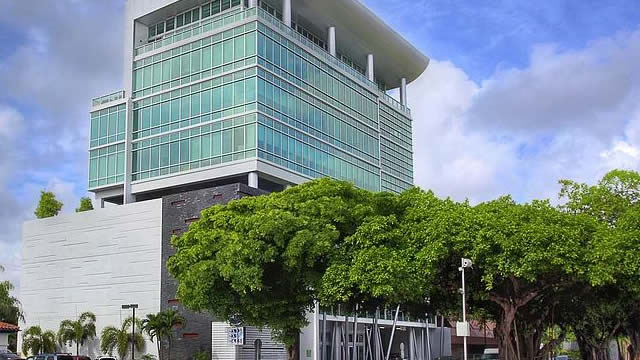Medical Properties Trust: Refinancing for Short-Term Relief, Long-Term Concerns
Medical Properties Trust (MPW), a real estate investment trust (REIT) specializing in healthcare facilities, recently raised cash by selling assets and issuing high-interest bonds to ease short-term liquidity concerns. However, this move raises questions about the long-term sustainability of the company.
Asset Sales and High-Interest Bonds
MPW sold $1.2 billion worth of medical office buildings to Blackstone Group Inc. and other buyers, while also issuing $1.05 billion in bonds with a 9.5% interest rate. The proceeds from these transactions will be used to pay down debt and fund ongoing operations.
Impact on Financial Metrics
The average debt cost for MPW has significantly increased, leading to higher annual interest expenses. This results in a narrowing spread between rental yield and debt cost, which could put pressure on the company’s cash flows and profitability. Moreover, despite a significant dividend cut, MPW continues to burn cash, raising debt to cover operating shortfalls. This is an unsustainable strategy that could lead to further debt issuance and increased interest expenses in the future.
Effects on Shareholders and the Market
Shareholders may be negatively impacted as the dividend cut reduces their passive income. Additionally, the increased debt burden could lead to a downgrade in MPW’s credit rating, making it more expensive to borrow in the future. The market may also react negatively to the news, as investors may view the company’s financial situation as unsustainable.
Impact on Tenants and the Healthcare Industry
The financial instability of MPW could lead to uncertainty for its tenants, who may worry about the long-term viability of the REIT. This could potentially disrupt operations and negatively impact patient care. Furthermore, the healthcare industry as a whole may face increased scrutiny if other healthcare REITs face similar financial challenges.
Conclusion
Medical Properties Trust’s recent refinancing efforts provide short-term relief from liquidity concerns but raise long-term sustainability questions. The increased debt burden, coupled with ongoing operating shortfalls, could lead to further debt issuance and increased interest expenses. This, in turn, could negatively impact shareholders, tenants, and the healthcare industry as a whole. It is essential for investors to closely monitor the financial situation of healthcare REITs and assess their long-term viability.
- Medical Properties Trust sells assets and issues high-interest bonds to ease short-term liquidity concerns
- Increased debt burden leads to higher annual interest expenses and narrowing spread between rental yield and debt cost
- Despite dividend cut, MPW continues to burn cash and raise debt to cover operating shortfalls
- Negative impact on shareholders, tenants, and the healthcare industry
- Long-term sustainability questions raised by MPW’s financial situation





